COP22: Fostering Climate Change Resilience in Egypt
2017
Jan 24th
At German Academic Exchange Service (DAAD), 11 Al Saleh Ayoub Street, Zamalek, Cairo, Egypt.
From November 7th to 18th 2016, world leaders assembled in Marrakech for the 22nd annual climate change conference, known as COP’22, to come up with an action plan for the implementation of the Paris Agreement. Despite the uncertainty caused by Donald Trump’s pledge for the US to pull out of the Paris climate agreement, many leaders chose to look ahead, and reinforce their commitment to the Agreement.
A few weeks prior to the COP’22 round of negotiations, the Paris Agreement came into force and became international law after 55 countries responsible for 55% of total greenhouse gas emissions ratified it. Today, 125 parties have ratified the agreement, out of 196 parties total, and the swiftness with which the agreement came into force came as a surprise to most.
COP’22 was referred to as the Action and Implementation COP, since many details of the Paris Agreement had been left vague to ensure a consensus between the 196 parties. In order to discuss general questions of mitigation and adaptation, financing, transparency and capacity building as well as concrete actions in Egypt, a panel of experts from Egypt and Germany assembled for the 45th Cairo Climate Talks. H.E. Julius Georg Luy, Ambassador of the Federal Republic of Germany to Egypt, opened the discussion at the German Academic Exchange Service (DAAD) on Tuesday evening by acknowledging Germany’s and Egypt’s active roles in the COP and congratulating the Egyptian government for successfully launching the second phase of the Africa Adaptation Initiative (AAI).
“Germany was the first country to present its Climate Action Plan 2050, a long-term strategy for systematically decarbonizing all key areas – energy, buildings, transport, industry, commerce, trade and services, agriculture, forestry and waste management,” Ambassador Luy stated. “However, Climate Change does not stop at national borders and neither should our actions,” he added. “In Paris country leaders have shown that they are willing to join forces. Now it is a common responsibility of politics, business and civil society to make sure that the agreement does not remain a mere lip service.”
H.E. Dr. Khaled Fahmy, Egyptian Minister of Environment, pointed out that national economic interests remain Egypt’s priority as they are in other countries. Climate action will consider these interests with Egypt remaining committed to the Paris Agreement in its entirety. “We respect the experience of others but we will do it our way. We will ask for your support but we will look at the wellbeing of the Egyptian people,” Minister Fahmy concluded.
Egypt signed the Paris Agreement in April last year but has not ratified it yet. Panelist Ambassador Wael Abou El Maged, Deputy Assistant Minister of Foreign Affairs for Environment and Sustainable Development, explained that it is in the nature of things that complex bureaucratic procedures take time. He ensured that the ratification process should take place before 2018’s COP, while the agreement has already entered into force notwithstanding ratification by Egypt.
Ambassador Wael explained the complex negotiation process by clarifying that countries form negotiation blocks, with Egypt being part of G77+China, the African group, the Arab group, as well as being represented in the Like-Minded Developing Countries’ group (LMDC). Leading the African Ministerial Conference on the Environment (AMCEN), Egypt currently coordinates discussions of the 2030 Sustainable Development Goals as well as the follow-up of the COPs. “It is one of the main trends that you don’t have the traditionally fault lines of developed countries vs. developing countries anymore” he pointed out.
One of Egypt’s most important mitigation measures as outlined in its Nationally Determined Contributions (NDC) is increasing the share of renewables in the energy mix. Dr. Magued Mahmoud, Technical Director of the Regional Center for Renewable Energy and Energy Efficiency (RCREEE), argued that developing banks are ready to provide finance for renewable energy projects but that developing countries are often lacking the capacity to make projects bankable. Regional exchange centers like RCREEE are offering their expertise on the project development side. “Renewable energy growth in Africa is inevitable,” he stated “some African countries have up to 30% of their lands with no access to the conventional grid.”
Mahmoud Refai, project manager at Siemens Power Generation Services Division, argued that the sharp decline of wind and solar prices over the years, by as much as 60% for wind, have allowed for a renewable energy transition to take place. However, the current combined efforts to curb emissions indicated in the NDCs worldwide won’t be enough. “We need to be more ambitious and the NDCs have to be 100% achievable,” he affirmed.
Civil society organizations are playing a crucial role in this regard as Hoda Baraka, an Egyptian environmentalist and the Global Communications Director for 350.org explained. “We provide a very important link for what happens within the negotiations and what the outside world needs to see”. One successful example for civil society action during COPs and beyond is the divestment campaign, which urges targeted and principled divestment from companies in the fossil fuels industry that meet certain criteria. In COP’22, civil society submitted a letter signed by 400 organizations highlighting some fossil fuel projects that, let-alone, will cause the surpass of the 2 degrees Celsius limit. Consequently, the organizations demand for actions to stop those projects from developing. “Civil society must and will continue to deliver the voices of the most vulnerable communities,” she insisted.
Lena Donat, fellow at the Berlin-based Ecologic Institute, explained that in October 2016 developed countries published a roadmap on how to provide 100 billion Dollars annually for developing countries to implement climate projects. “Now that temperatures are actually rising, developed countries are recognizing that adaptation becomes a serious topic,” she said, explaining that in the past mitigation measures were given much higher priority. With regards to the COP’22 she emphasized that with the new NDC partnership and the platform for 2050 strategies “not only stakeholders on the country level but also non state actors stand behind the Paris Agreement.”
https://www.youtube.com/watch?v=-lk7wqYcfzk&feature=youtu.be
Meet our Panelists
Ambassador Wael Abou El Magd
Deputy Minister of Foreign Affairs for Environment and Sustainable Development of Egypt
Dr. Maged Mahmoud
Director for projects and technical affairs at the “Regional Center for Renewable Energy and Energy Efficiency (RCREEE)”.
Hoda Baraka
Global Communication manager for “350” organization.
Mahmoud El Refai
Siemens Project Manager for Power Generation Services
Lena Donat
Fellow at the Ecologic Institute, specializes in international environmental law with a focus on climate change
Meet our Moderators
Louise Sarant
Environmental Journalist and Researcher
Venue / location
At German Academic Exchange Service (DAAD), 11 Al Saleh Ayoub Street, Zamalek, Cairo, Egypt.
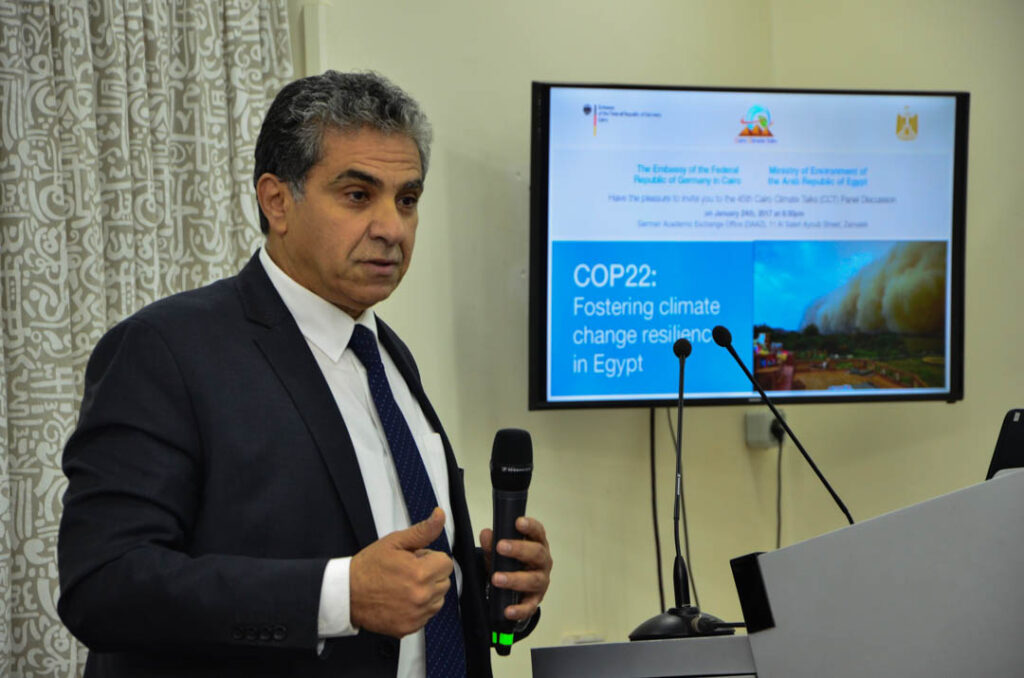
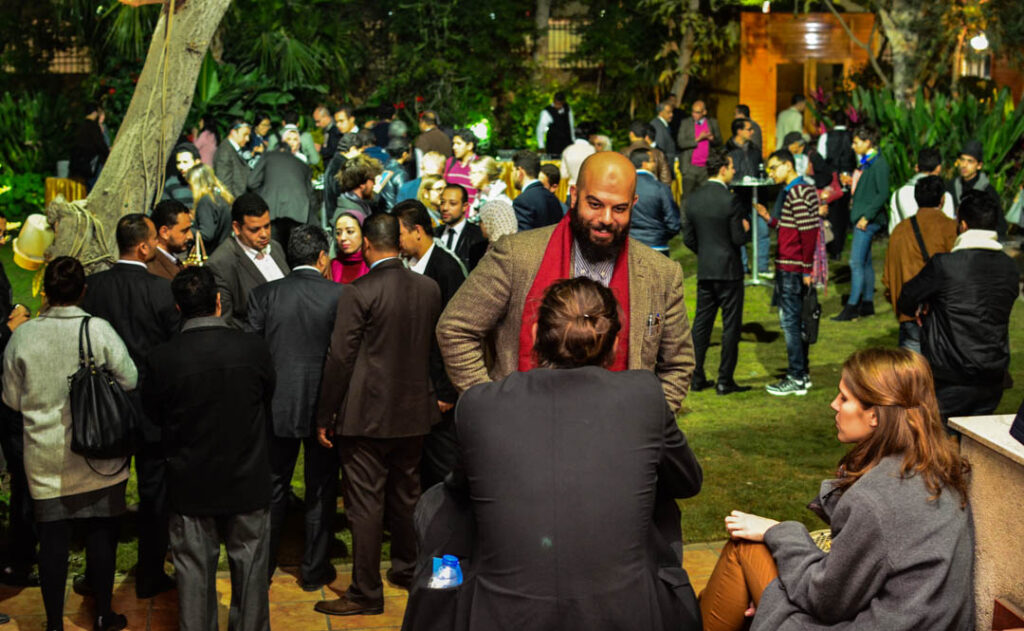
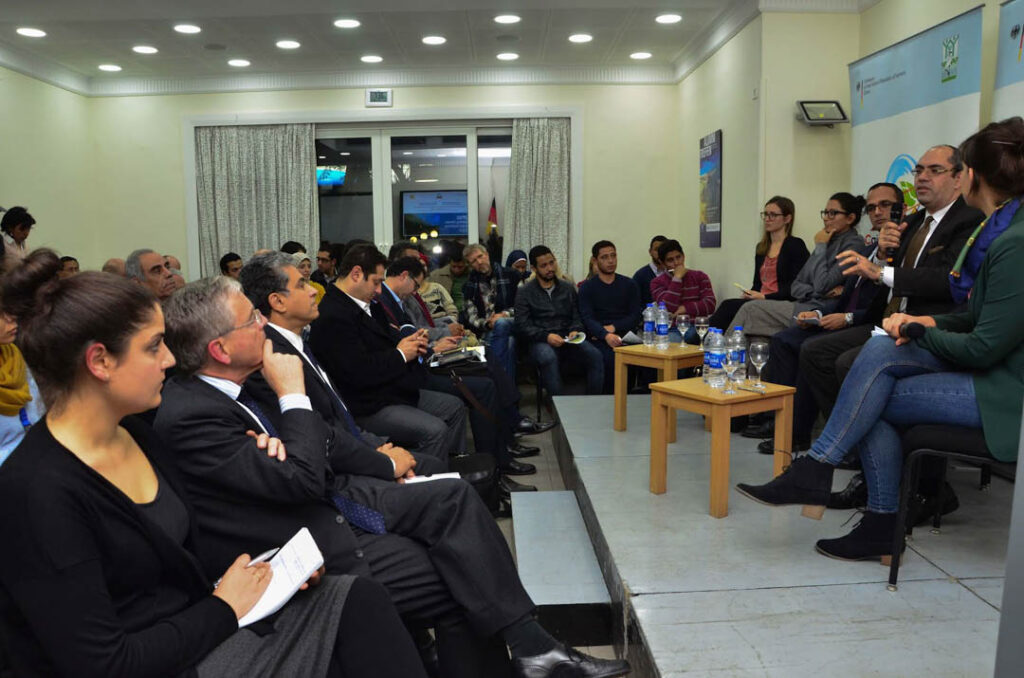
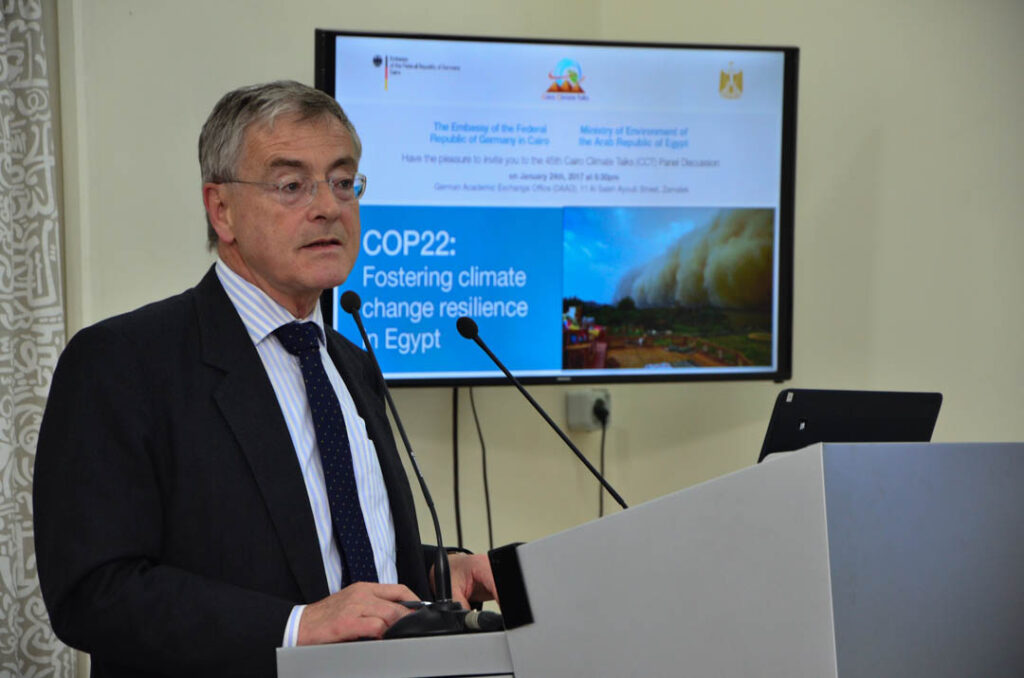

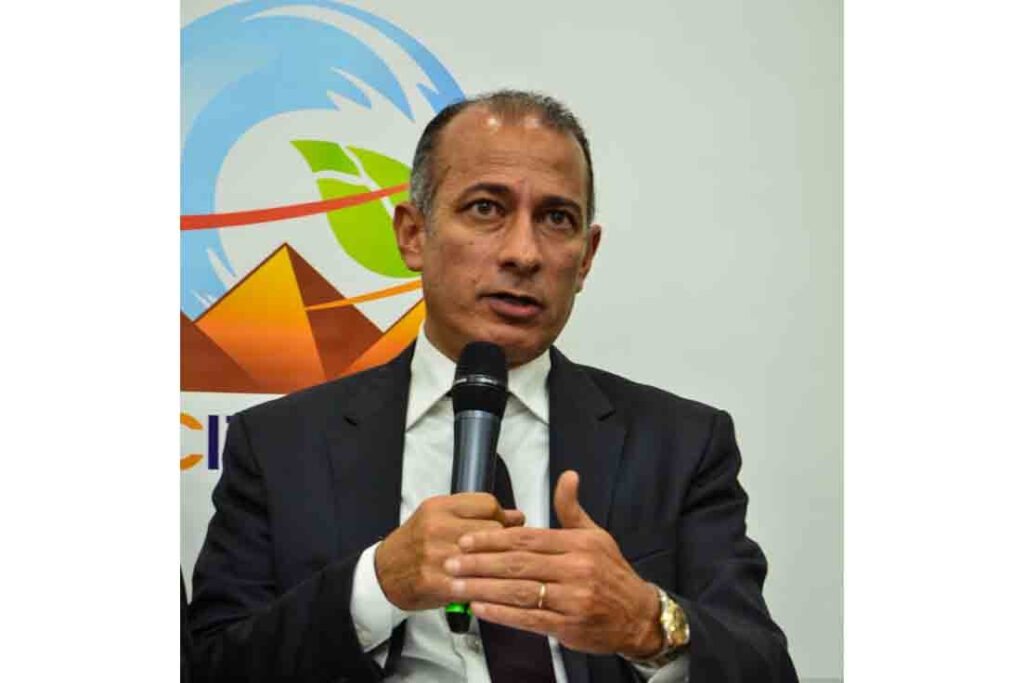



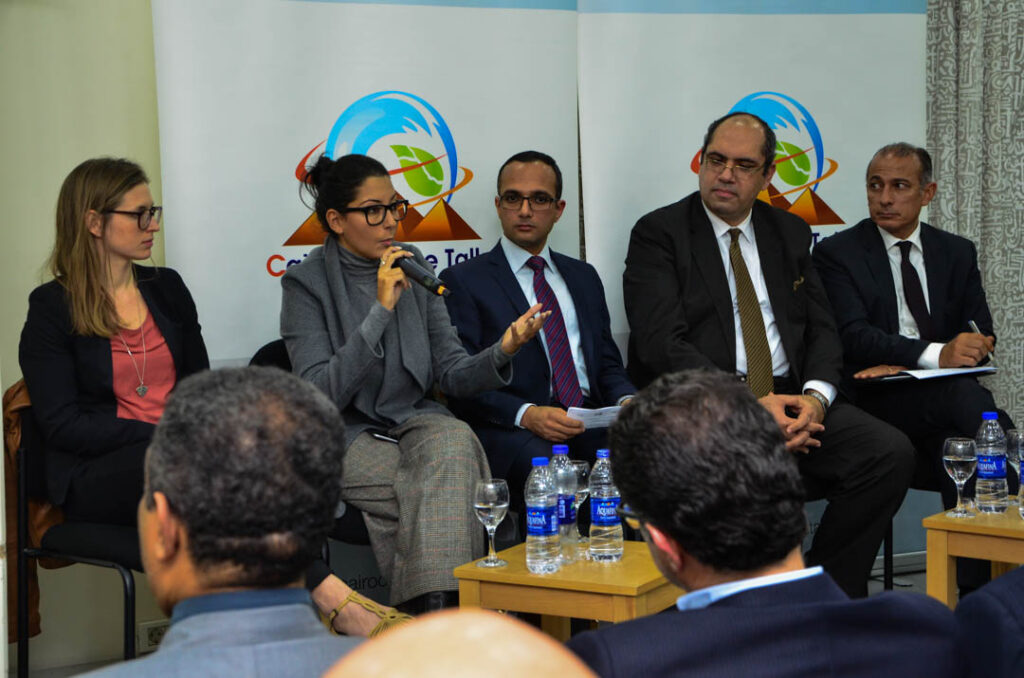
Are you interested? Don’t miss out by registering to our events. We hope to see you there.
